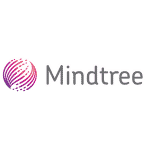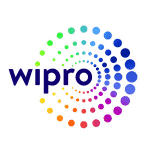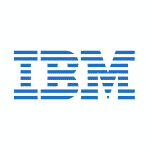![]()
Howdy! Welcome back to thinkcloudly’s knowledge blog! We recently conducted a survey among our students and readers, and we heard you loud and clear. Many of you expressed a desire for more how-to guides and exam tips. Well, we’re excited to announce that we’re starting a new series of blogs focusing on these topics, specifically on various IT certification exams.
As you may know, I’m a huge fan of Microsoft Cloud. So, today’s blog topic is all about demystifying Azure Fundamentals and taking a closer look at its core services. In particular, we’ll be sharing some helpful tips for the AZ-900 exam.
Whether you’re new to Azure and just getting started or you’re aiming to boost your IT credentials, this blog post is for you. We’ll explore the essential core services offered by Azure, explain key concepts in a clear and concise manner, and share valuable tips to help you prepare for the AZ-900 certification exam with confidence.
Thank you for being part of our thinkcloudly community. We’re excited to have you on board as we embark on this journey together. Let’s dive in and unlock the power of Azure Fundamentals!
Let’s Start from Starting!
What is Cloud Computing?
For a better understanding of cloud computing, we need to break it down into two sections: CLOUD and COMPUTING. Firstly, let’s take a look at computers. What are they?
The computer is an electronic device that takes input from users and processes it to produce meaningful results.
Now if we talk about the core functionalities of a computer we can say that it provides:
- Compute: A computer performs computations, and carries out tasks using its processing power. It can handle complex calculations, process data, and run software applications. For example the addition of 2 numbers.
- Storage: The results that you get from computation are stored in storage provided by computers to hold and retain data, files, and programs. It gives you RAM, ROM, HDD, and SSDS for storage.
- Networking: Now when your computation is done and is stored in the storage of your computer and if you would like to share it with another computer there comes networking. Computers can connect to networks, communicate with other devices, and access resources such as shared files, printers, or internet connectivity.
- Database: Computers can host and manage databases, which are structured collections of data. Databases organize and store information, providing efficient methods for storing, retrieving, and manipulating data for various purposes, such as business operations, data analysis, and application development.
Build Your Career as a
Azure Cloud Architect
- Live Projects
- Resume / Interview Preparation

Let’s look at the cloud now that we’ve understood computing services.
“Cloud” is nothing but a metaphor for the internet when it comes to cloud computing.
The cloud represents the abstract nature of these remote resources. Just like clouds in the sky, the cloud in cloud computing is a virtual space where users and organizations can access computing resources, such as servers, storage, and apps.
So let’s put together the cloud and computing definitions:
Cloud computing is basically providing computing services such as computing, storage, networking, and database on the internet.
There are many cloud providers such as Amazon AWS, Microsoft Azure, Google GCP, IBM Cloud, Alibaba, and many more.
In this blog, we will talk about Microsoft Azure. If you want to begin your journey into Cloud Computing, especially with Microsoft Azure, the AZ-900 or Azure Fundamentals certification is the perfect starting point. It’s designed to give you a solid foundation and introduction to Azure, even if you’re new to the field. It provides the essential knowledge you need to get started in a straightforward and easy-to-understand way.
Boost your earning potential with Azure expertise. Explore our certified Azure Courses for a high-paying career
- Explore Azure DevOps Certification
Azure Fundamentals certification (Az-900)
Microsoft has a full fledge certification path based on various roles specifically “Microsoft Certified Azure Fundamentals ”.
The certification covers a wide range of topics, such as core Azure services, security, pricing, and support. It is intended for individuals who have a foundational knowledge of cloud services and want to learn more about Azure. Passing this certification is a great way to demonstrate your knowledge of Azure.
Both non-technical and technical candidates can take this exam to test their basic understanding of Azure cloud services. You need to pass the AZ-900 exam which is a prerequisite for this certification.
What is the curriculum of the Azure fundamentals (Az-900) exam?
- Core Azure Services (30-35%);
- Lifecycles, Service Level Agreements, and Azure Pricing (20-25%);
- Privacy, Trust, as well as Security and Compliance (25-30%);
- Cloud Concepts (15-20%).
How much preparation time is required for the Az-900 exam?
According to me, clearing the test shouldn’t be our main focus, we should focus on learning the technique. The average amount of time it takes to learn and become an expert in cloud computing fundamentals is 5-6 weeks. To enter the cloud computing world, you will have to go through the theoretical concepts and learn them one by one. This is the most basic building block, and you will have to be familiar with each concept very well.
How much does an Azure fundamentals exam cost?
The Az-900 exam costs $99 USD, and you can schedule your exam online.
Before starting your preparation for the AZ-900 exam, you should check the exam price. Fees for these exams may change depending on where they are administered. In the United States, the exam costs $99 per person.
Microsoft Imagine Academy members, Microsoft Partner Network members, and Microsoft Certified Trainers benefit from a reduced rate. In addition, students are entitled to a fee reduction.
Format of the Azure fundamentals -Az-900 Exam
Question1. What is the Exam Structure of Azure fundamentals certificate?
Answer. The AZ-900 exam is a multiple-choice exam, which means you’ll be presented with several options for each question, and you need to select the correct answer(s).
Question2. How many questions can be asked in the Az-900 exam?
Answer. The exam typically consists of around 40-60 questions. However, please note that the exact number of questions may vary.
Question3. What is the Time Limit?
Answer. You will have a set amount of time to complete the exam. The duration is usually around 60 minutes, but it’s best to check the official Microsoft website for the most up-to-date information.
Question4. What is the syllabus of the Az-900 exam?
Answer. The exam covers various topics related to Azure Fundamentals, including cloud concepts, core Azure services, security, privacy, compliance, and pricing and support. It assesses your knowledge of fundamental concepts and basic functionalities of Azure.
This exam requires a total of 700 points to pass. If the candidate receives less than this number of votes, he or she will be declared bankrupt. Your exam results will be available a few minutes after the exam ends. If you want a detailed dash
Question5. What is the Passing Score in the Azure fundamentals exam?
Answer. board, you will need to wait a few days.
This dashboard can include general exam performance, pass/fail status, a bar chart showing exam performance in key areas, and instructions on how to use it. Your exam results.
Question6. How to Prepare for Microsoft Azure Fundamentals in 2023?
Answer. For me, Self-study is a daunting task, but there are several strategies that can make it more manageable and enjoyable. A few techniques that have helped me personally are a habit tracker, a few community resources, and some online courses. Here are my favorites:
- AZ-900: Microsoft Azure Fundamentals course with hands-on labs from Thinkcloudly
- Meet other learners, share experiences, and stay up-to-date with the Microsoft Learn Tech Community.
Taking an instructor-led course is the best way to learn if you’re not an IT person or a fresher. You can learn all the concepts of Azure from scratch and practice the lab with real-life scenarios. With an instructor-led course, you can get personalized assistance and clear doubts from an expert. You can also learn at your own pace and ask questions as needed. Plus, the course allows you to network with peers and gain valuable industry insights.
What are the Various Azure Services?
Azure provides a wide range of cloud computing services and functionalities. A brief explanation of Azure’s functions and some key Azure services are provided below:
Virtual Machines (VMs): Azure provides virtual machines that allow you to run applications and services in the cloud. VMs function similarly to physical computers but are hosted in Azure data centers. You can choose from a variety of VM sizes, operating systems, and configurations to meet your specific requirements.
Azure App Service: This service enables you to build, deploy, and scale web and mobile applications quickly. It supports various programming languages and frameworks, making it flexible for different development needs.
Azure Storage: Azure offers scalable and secure storage solutions, including Blob storage for unstructured data, Table storage for NoSQL data, Queue storage for messaging, and File storage for file sharing across applications.
Azure Functions: Azure Functions allows you to run small pieces of code, known as serverless functions, in response to events or triggers. It enables event-driven programming and helps build applications with less infrastructure management.
Azure SQL Database: This fully managed relational database service allows you to store and manage structured data in the cloud. It provides high availability, automatic backups, and built-in security features.
Azure Cosmos DB: Cosmos DB is a globally distributed, multi-model database service. It supports various database models, including key-value, document, graph, and column family, and provides low-latency access to data across different regions.
Azure Networking: Azure offers a range of networking services, including a Virtual Network (VNet) for creating isolated network environments, a Load Balancer for distributing traffic, a VPN Gateway for secure connections, and Azure DNS for domain management.
Azure Active Directory (Azure AD): Azure AD is a cloud-based identity and access management service. It enables single sign-on, multi-factor authentication, user management, and integration with various applications and services.
Azure AI and Machine Learning: Azure provides AI and machine learning services, such as Azure Cognitive Services for adding pre-built AI capabilities to applications, Azure Machine Learning for building and deploying ML models, and Azure Bot Service for creating chatbots.
Azure DevOps: This set of development tools and services supports the entire application development lifecycle. It includes features for source code management, continuous integration, and delivery (CI/CD), project management, and collaboration.
Final Thoughts
In this blog, we explored cloud computing basics, discussed the significance of the AZ-900 certification, and highlighted key Azure services. By leveraging the resources mentioned, readers can confidently prepare for the exam and unlock the full potential of Azure. Stay tuned for more IT certification insights and cloud computing guides. Let’s embark on a successful cloud-computing journey together!










